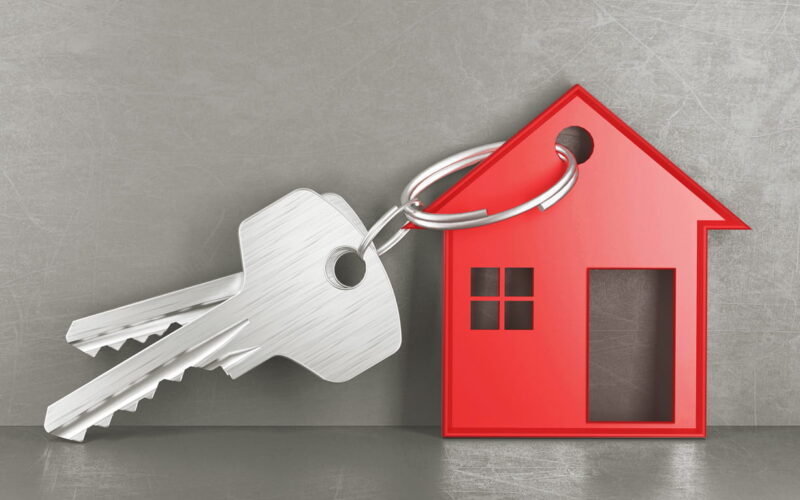A real estate transaction usually takes a long time and involves a lot of paperwork and legalities. Even so, once you have your hands on the keys to your new house, all the hassle is worth it. However, to get the house of your dreams, you’ll have to work with your seller. And as the closing procedure nears its end, escrow closes to guarantee that everyone has done their part.
Close of escrow is essentially when you sign the documents that transfer ownership of the property to you. Meanwhile, there are many steps and a long list of things that must be completed before you may become a homeowner. This article focuses on everything you need to know about what close of escrow means, the process, and what happens at the close of escrow as well as its possession timing.
What Does Close of Escrow Mean?
Close of escrow occurs at the actual time when it’s time to complete the transaction and the prospective buyer receives ownership of the property from the seller. In other words, closing on a home occurs after both parties fulfill their respective obligations; although there is no guarantee that this will take place on the closing day itself. Regardless, there is a probability to exchange all of the required materials in advance of the exchange of titles.
One significant benefit of an escrow account is that it is not necessary or mandated for the seller to be present. As a rule, the escrow broker, a third-party mediator, can sign and deliver documents for the transfer of ownership. With this, escrow has basically come to an end, with nothing more to be done.
Generally, in the vast majority of real estate deals, there will always be a time for the close of escrow to come into play. Meanwhile, because the majority of people who buy a home do so with a mortgage, there will certainly be a period to wait for financing to be acquired. Even if you’re paying cash, you might put down a deposit. This is to allow yourself time to check the property and take note of major flaws.
Normally, as part of a conventional real estate transaction, you will certainly need an “escrow”. And until the time of completing the sale, they act as a neutral third party to keep all money and paperwork safe and secure. The process of the close of escrow, however, involves the seller of the property giving the escrow agent all of the relevant documents. The escrow agent holds the documents until the buyer provides the money for the sale and then gives the money back to the seller.
Close of Escrow Process
The moment a seller approves a sales agreement and the buyer takes ownership of the home, the closing of the escrow process usually takes place. Generally, it starts with the establishment of an escrow account in which deposits and other payments can be held. All the way through to conducting walk-throughs and finishing the close of the escrow process.
However, if things do not meet the buyer’s terms or an issue arises with the property, the buyer has the right to terminate the contract.
#1. Set Up an Escrow Account
While you and the seller agree on terms and sign a mutually agreeable sales contract, your real estate agent will obtain your earnest money. This generally acts as a good faith deposit that is eventually attached to your down payment. Your agent will deposit it in an escrow account at the escrow brand or business stated in the sales contract.
A third party usually handles an escrow account to keep goods on behalf of two agreeing parties. These however could include money, property deeds, and personal finance documents until the fulfillment of certain requirements during a financial transaction. The escrow agent may be a real estate title business, a bank or other financial institution, or a private individual, depending on the reason for escrow.
The escrow business serves as a neutral third party to collect the necessary funds and documents for the closing. Documents such as the earnest money check, loan documentation, and the signed deed. In some locations, rather than using an escrow corporation, attorneys manage this close escrow process. This is otherwise known as “settlement” rather than “escrow”.
#2. Wait for the Lender’s Appraisal
To safeguard its financial interests in the event there’s a need to foreclose on the asset, the financial institution or other lenders issuing your mortgage will do their own assessment of the property. However, note that you, being the buyer, will normally pay for it. Meanwhile, if the appraised value is less than the proposed price, the lender will not grant you money. Not unless you are willing to pay the difference in cash or the seller agrees to decrease the price to the appraised value.
#3. Gets Financing in Place
During that period, while the seller accepts your purchase agreement, you are supposed to have a mortgage pre-approval in place. Generally, your lender will generate a good faith estimate or statement. They normally detail your loan amount, interest rate, closing charges, as well as other necessary costs involved in the transaction once they are able to get the property address from you. Nevertheless, before you decide to put pen to paper and sign this document, you might wish to haggle over the figures.
In other words, in a situation where a financing contingency exists in the purchase agreement, you should clear it in writing the moment you have your formal loan commitment.
#4. Approve the Seller Disclosure
The Seller’s Disclosure (Property Disclosure) is a legal form that the seller must fill out. It typically describes the current state of the property they’re selling, as well as any problems or historical incidents. This is especially true for ones that the buyer needs to be aware of. This includes any major issues the listing or seller’s agent identifies.
However, if you live in a state where the caveat emptor rule applies, certain vendors may refuse to furnish a Seller’s Disclosure. Hence, this places the onus on the buyer to conduct due diligence on the property. Regardless of if you obtain a seller’s disclosure or not, you should employ a home inspection firm to avoid any unpleasant surprises.
#5. Obtain and Complete Home Inspection or Appraisal
In your best interest, you need to obtain and complete home inspections when buying a house, and now is the time for that. Many lenders need an appraisal, while a buyer may or may not desire a home inspection. Nevertheless, if there are any severe issues, now is the moment to ask the vendor to remedy them, or probably reduce the purchase price to compensate. A skilled home inspector can help notify you if the house has any harmful or expensive flaws.
In addition, it is critical to include a deadline with the request for the seller to proffer a solution to the above issues. Meanwhile, you have the option to cancel the purchase. This, however, is if the seller fails to perform the repairs by the agreed-upon deadline.
#6. Insurance and Title Report
You will certainly need this, and your lender may also require it. The title report typically verifies that the property’s title is clear. That is, there are no liens against it and no one other than the seller has a claim to any portion of it.
However, if something doesn’t show up during the title search, title insurance protects you and the lender from any legal difficulties that may develop later.
On the contrary, if there is a cloud or flaw in the title, the seller must remedy it before the sale can proceed. Or if you do not, you will be allowed to walk away. Meanwhile, the escrow company and the title company may be the same depending on where you live.
#7. Review All Escrow Documents
Generally, after completing the inspection and appraisal to the buyer’s delight and that of the seller, acquiring escrow documents follows. Both the buyer and the seller must review certain paperwork or documents. Paperworks such as the transfer deed, bill of sale, seller’s affidavit, signed mortgage deed, mortgage application, and Closing Disclosure. However, all of the aforementioned documents may differ depending on the buyer’s financing.
In most cases, it’s usually a good idea for the involved parties to have a real estate attorney or an experienced real estate agent read over these documents. As a rule in relation to the subsequent statement, it has become a law in about 22 states for a real estate attorney to be present at the closing.
#8. Take the Final Walk-Through
The escrow company will offer an expected close date once all of the appropriate documents have been filed and authorized. Thus, it’s a good idea to re-inspect the ownership rights before closure. This, however, is to make sure there are no new damages and that the seller has acted properly by leaving you the equipment indicated in the purchase agreement (such as appliances or fittings). Therefore, you should undertake a last walk-through of the house to make sure it’s in the same condition as when you made the offer. (britespanbuildings) Otherwise, if you go on with the escrow close, you may have little recourse if difficulties arise later.
#9. Close Escrow
Closing procedures usually differ from one state to the next. Both the buyer and the seller are usually present. Meanwhile, both of you’ll need to sign a lot of paperwork. You should read it carefully and take your time. A lender’s representative, a closing agent, a real estate agent, and legal representation may also be present.
Title forms, transfer of tax declarations, the initial escrow statement, deed of trust, mortgage-related documentation, closing disclosure, and proof of insurance are just a few of the closing documents to sign. A cashier’s check for the down payment and closing charges must also be prepared and submitted by the buyer.
After finalizing everything, the escrow agent then prepares and hands over the deed to the new owner. This usually has all of the essential and or compulsory new information.
What Happens at Close of Escrow
Generally, at the end of the preceding processes, escrow automatically closes, but the transaction is not yet complete. However, whether or not the seller is present on closing day, certain things must occur. These are what will affect and leads to sealing the transaction.
The buyer will first have the opportunity to do a quick sweep and final walk-through or inspection of the property. Although it’s doubtful that anything will go wrong at this point, nevertheless, it’s always nice to take one more glance.
After that, the lender must receive a down payment, and there will also be payments of closing charges. As a rule, the earnest money will be removed from the escrow account. The lender will then issue a single large check to the seller. Except if there is a negotiation or agreement between the buyer and seller, the buyer on the closing day of the transaction usually acquires legal ownership of the property.
Possession Close of Escrow
Possession of close escrow in real estate simply means the transfer of ownership from the seller to the buyer. However, with most home sales, this form of transfer is usual. A buyer may wish to move into the home before completing the sales in order to begin repairs.
Generally, possession closes escrow occurs in a real estate transaction when the buyer gains ownership of the property after signing the closing agreements. The final step in a real estate deal is to close escrow and take possession. The buyer and seller must first draft a property acquisition agreement. The purchase price, possible seller aid with closing expenses, the closing date, and what contents come with the home are all items in the agreement that you can negotiate.
How are escrow possession and ownership different?
The major distinction between close escrow possession and ownership is that; possession necessitates physical control or handling of an object. Whereas ownership refers to the right to receive something. Ownership can be thought of as a reality that can be shown by the property title.
Conclusion
The closing of escrow occurs at the time the transaction is completed and the new homeowner takes ownership of the property from the seller. The benefit involved in this is that the seller does not need to be present. The escrow agent can sign and deliver documents for the transfer of ownership. The majority of real estate deals will involve real estate escrow. This, however, is because the majority of people who buy a home do so with a mortgage. As such, there will be a waiting period to acquire financing. Even if you’re paying cash, you might have to put down a deposit. And this is to allow yourself time to check the house and look for major flaws.
Close of Escrow FAQs
What is escrow as a legal funtion ?
The process of closing of escrow possession legal function involves the closing agent, who is in charge of all important paperwork related to the transaction, such as insurance receipts, deposits, and closing cost payments. They also oversee the filing of the mortgage and deed with the proper courts. The deed to the property is updated with the new seller’s name and provided to the lending institution financing the deal when the closing session is successfully completed.
What documents do you need for close of escrow?
Generally, to process the close of escrow possession, the specific documents that you need will depend on how you are funding the purchase. Nevertheless, such documents may include; a bill of sale, transfer deed, mortgage, affidavit, mortgage application, and closing disclosure.
Who pays a home closing cost?
Who pays closing expenses is determined by the purchase contract. The buyer typically pays the majority of closing fees. These expenses include the mortgage, appraisal, home inspection, and insurance. On the other hand, the seller pays real estate commissions, which in most cases can be large.
In a neutral market, when does possession change hands?
In a buyer’s market, purchasers will typically demand occupancy at closing. However, it has become a norm for them to refuse to complete if the property will not be unoccupied at closing. When a neutral market closes, the process of the close of escrow possession usually changes hands.
Related Articles
- Escrow on a Mortgage: Understanding the Escrow Process & Requirements
- ESCROW IN REAL ESTATE: WHAT IT IS AND HOW IT WORKS
- WHAT IS ESCROW ON MORTGAGE: Advantages, Disadvantages & How It Works
- ESCROW REFUND: What To Expect With An Escrow Refund
- ESCROW OFFICER: Overview, Salary & How To Become An Escrow Officer






